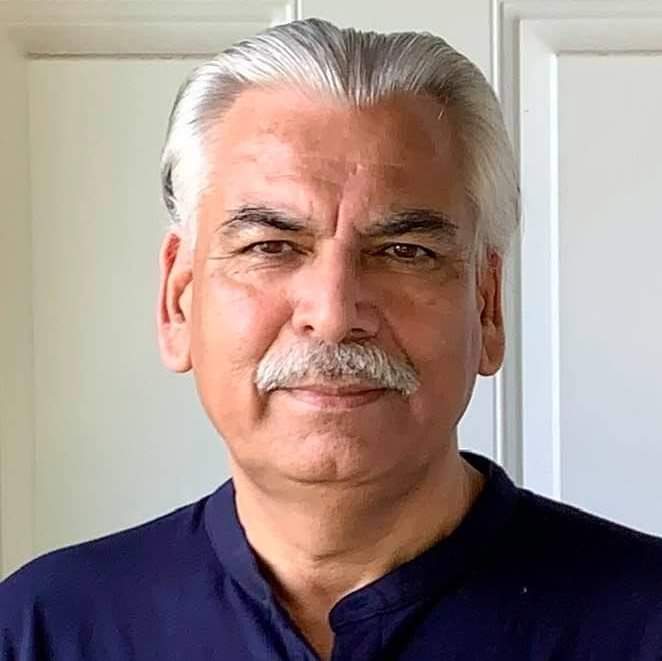Bilawal Bhutto-Zardari: A New Voice for Pakistan in a Shifting World
By: Barrister Usman Ali, Ph.D.
After leading a high-level diplomatic mission amid renewed Pakistan-India tensions, PPP Chairman and former Foreign Minister Bilawal Bhutto-Zardari returned home having delivered what is widely seen as a diplomatic success. His 11-day tour included visits to major capitals, Washington, London, Brussels, where he effectively presented Pakistan’s perspective on India’s provocations, reaffirmed Pakistan’s desire for peace, and cautioned the international community about rising instability in South Asia.
In doing so, Bilawal not only represented Pakistan with clarity and confidence, but also proved that leadership and diplomatic skill run deep in the Bhutto lineage. Like his grandfather Zulfiqar Ali Bhutto and mother Benazir Bhutto before him, Bilawal showed that he is capable of engaging the world on Pakistan’s terms. His strong performance has sparked renewed hope in a younger generation that sees in him a modern, articulate statesman, one who can bridge the gap between tradition and a fast-changing global landscape.
This recent diplomatic initiative is part of a broader outreach strategy by Pakistan, particularly in the West, to counter India’s increasingly influential lobbying and present Islamabad’s narrative with conviction. At the heart of this effort is more than just statecraft, it is the continuation of a political legacy that has long defined Pakistan’s international identity.
The Bhutto family has historically been central to Pakistan’s foreign policy engagement. Zulfiqar Ali Bhutto, widely credited as the architect of Pakistan’s modern diplomacy, reshaped the country’s global outlook during a time of profound geopolitical uncertainty. As Foreign Minister in the 1960s, he forged Pakistan’s ties with China and the broader Muslim world. His performance at the United Nations in 1971, during the East Pakistan crisis, remains one of the most memorable moments in Pakistan’s diplomatic history, when he tore up his speech in protest and walked out, asserting Pakistan’s sovereignty with dramatic force. He later negotiated the Simla Agreement, redefined Pakistan’s security doctrine, and laid the foundations of its nuclear program.
Benazir Bhutto inherited that diplomatic instinct and evolved it to suit a new era. As the first female leader of a Muslim-majority nation, she defied global expectations. Her two terms in office saw high-level engagement with the US, UK, and regional powers, where she consistently projected Pakistan as a moderate, democratic voice in a turbulent region. Her commitment to women’s rights, education, and public health gave Pakistan a new soft power profile abroad.
Now, Bilawal Bhutto-Zardari steps into this tradition, facing a world of great-power competition, climate disasters, and digital disruption. As Foreign Minister, he quickly established himself as a compelling voice. His UN address on the 2022 floods framed Pakistan as a frontline victim of climate injustice, earning global sympathy and support. His style blends principled clarity with contemporary fluency, a rare balance that resonates with international audiences.
The recent mission in Western capitals was not merely reactive, it was strategic. Bilawal’s team focused on asserting Pakistan’s red lines on Kashmir and regional security, while also emphasizing its desire for peace and cooperation. At every stop, the message was consistent: Pakistan must be heard, not spoken for. Diplomacy, in this view, is not just about damage control; it’s about shaping perception and building influence.
What sets Bilawal apart is not just his last name, it’s his grasp of the global moment. He understands that Pakistan’s diplomacy must now engage not only traditional power corridors but also media, youth, and civil society. His ability to operate confidently in multilateral forums, media interviews, and bilateral meetings signals a generational shift in how Pakistan can project itself, less defensive, more assertive; less reactive, more proactive.
While domestic challenges remain immense, and foreign policy alone cannot solve structural crises, Bilawal’s success abroad is a welcome signal. It reminds Pakistanis that capable, internationally-minded leadership exists, and is growing. In a political landscape often dominated by polarization and short-term populism, a serious, globally literate statesman offers a refreshing contrast.
As the Bhutto legacy enters its third generation, what endures is the conviction that Pakistan deserves a respected place on the world stage. From Zulfiqar’s boldness to Benazir’s diplomacy and now Bilawal’s clarity, the family has consistently advanced a vision of Pakistan rooted in sovereignty, peace, and progressive engagement with the world.
In these uncertain times, Bilawal Bhutto-Zardari has shown he is more than a name, he is a capable voice for Pakistan. And in a country searching for steady hands and forward-looking vision, that is no small thing.

